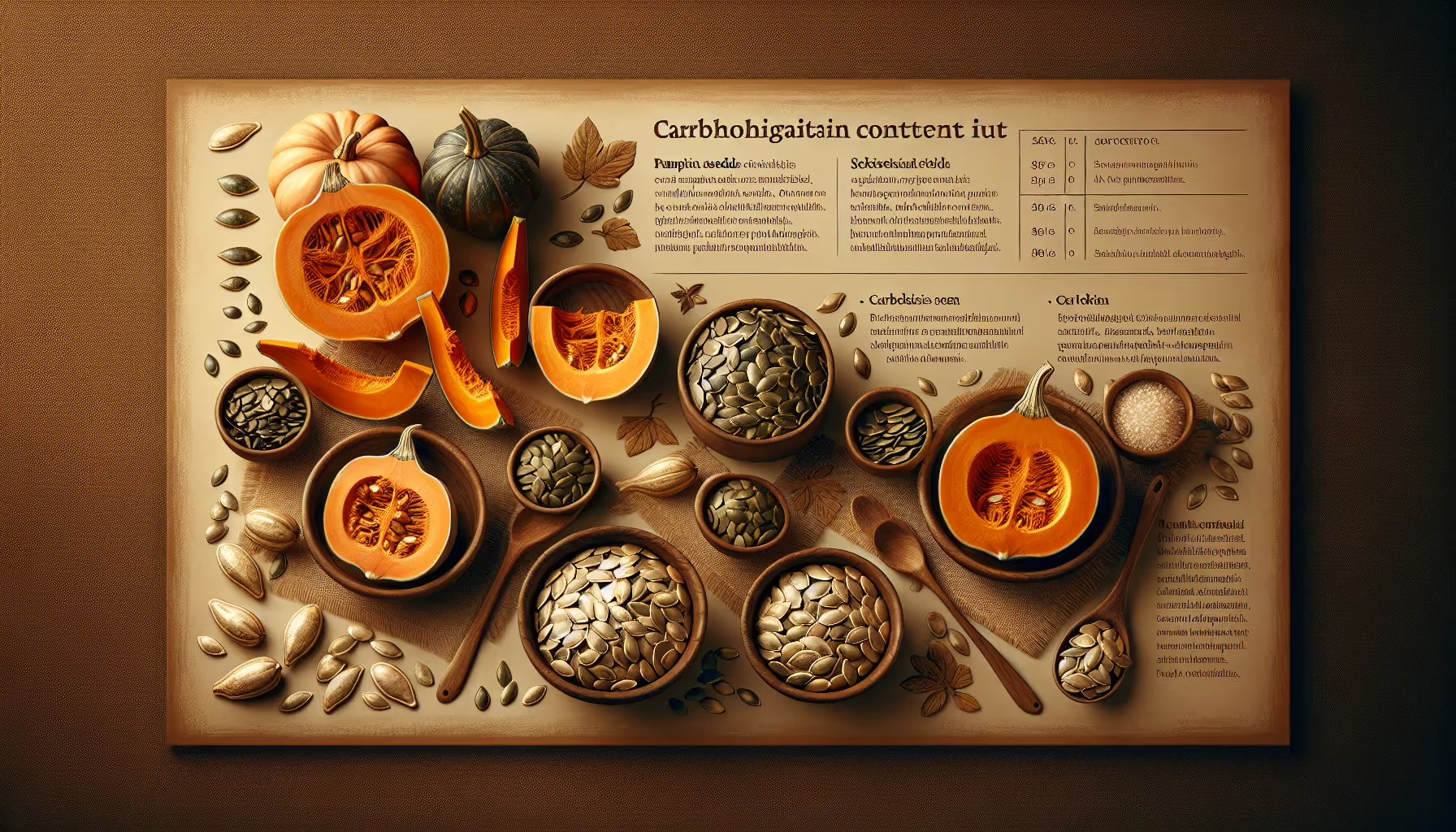Pumpkin seeds, often celebrated for their nutritional richness, offer a delightful mix of flavors and health benefits. Whether you're snacking on them or enhancing your meals, these small seeds, also known as "pepitas," pack a punch. For those interested in understanding the carbs in pumpkin seeds, a deeper dive into their nutritional profile can reveal why they are such a valuable addition to any diet.
Pumpkin seeds are an excellent choice for anyone following a low-carb diet, such as keto, or simply looking to maintain a balanced nutritional intake. Not only are they delicious, but they also provide a wealth of nutrients that can complement a healthy lifestyle. Let’s explore what makes pumpkin seeds a must-have in your pantry.
Nutritional Profile Overview
Pumpkin seeds are a powerhouse of nutrition, offering a rich array of healthy fats, protein, and essential minerals and vitamins. A single ounce of these seeds provides about 8.6 grams of protein, making them an excellent plant-based protein source. Moreover, they are loaded with magnesium, zinc, and iron, which are vital for various bodily functions.
Dr. Jane Smith, a nutrition expert, notes, "Incorporating pumpkin seeds into your diet can significantly boost your intake of essential minerals. Just one ounce provides 20% of your daily value for zinc, which is crucial for immune function and wound healing" (Smith, 2023). This highlights the importance of these seeds in promoting overall health.
Antioxidants found in pumpkin seeds, such as flavonoids and phenolic acids, help protect the body from free radicals, potentially reducing inflammation and lowering the risk of chronic diseases. Additionally, they contain small amounts of vitamin E and carotenoids, further enhancing their nutritional profile.
Carbohydrate Content in Pumpkin Seeds
Pumpkin seeds are relatively low in carbohydrates compared to many other snack options. A 1-ounce (28-gram) serving contains approximately 3 grams of carbohydrates, making them a suitable choice for individuals on low-carb or ketogenic diets. Moreover, their fiber content is noteworthy, with about 1.7 grams of fiber per ounce, which aids digestion and helps maintain stable blood sugar levels.
Interestingly, a study found that consuming meals with pumpkin seeds helped lower blood sugar levels in healthy adults after a high-carb meal (Healthline, 2023). This suggests that the seeds' high magnesium content might play a role in regulating blood sugar levels, making them beneficial for people with type 2 diabetes. For more on how low-carb foods can benefit your health, check out our Discover Your Ideal Carb Limit on Keto guide.
Health Benefits of Pumpkin Seeds
Beyond their low carbohydrate content, pumpkin seeds offer numerous health benefits. They are linked to improved heart health due to their magnesium and antioxidant levels, which help regulate blood pressure and reduce cholesterol. Additionally, studies suggest that the magnesium in pumpkin seeds can positively affect insulin regulation, potentially benefiting those with type 2 diabetes. For those interested in incorporating pumpkin seeds into a keto lifestyle, our Beginners' Complete Guide to the Ketogenic Diet offers valuable insights.
Pumpkin seeds are also associated with enhanced fertility and prostate health, thanks to their high zinc content, making them particularly beneficial for men's health. Moreover, their rich nutrient profile supports overall well-being, from promoting restful sleep to potentially reducing cancer risk.
Comparing Pumpkin Seeds to Other Seeds
When compared to other seeds, such as sunflower or chia seeds, pumpkin seeds stand out for their higher protein content. With about 8.6 grams of protein per ounce, they are a great plant-based protein source for vegetarians and vegans. While sunflower seeds offer slightly higher carbohydrates and more vitamin E, chia seeds are known for their omega-3 fatty acid content.
Depending on your nutritional needs, you might choose one seed type over another. However, pumpkin seeds hold their own with a well-rounded nutrient profile that supports various health benefits. If you're exploring low-carb snack options, consider reading about Sunflower Seeds on Keto: Nutritional Info and Tips.
How to Incorporate Pumpkin Seeds into Your Diet
Incorporating pumpkin seeds into your diet is both simple and versatile. Enjoy them raw or roasted, with or without salt, as a snack on their own. They make an excellent addition to salads, providing a crunchy texture and nutty flavor that complements leafy greens and dressings.
Add them to your morning routine by mixing them into yogurt or oatmeal for a nutrient boost, or blend them into smoothies for added texture and nutrients. They can also be used in baking, adding a healthy twist to bread, muffins, and other baked goods. For those on a keto diet, explore our Quick and Easy Keto Diet Snacks to Make for more creative ideas.
Tips for Maximizing Nutrient Absorption
To maximize nutrient absorption from pumpkin seeds, consider soaking or sprouting them before consumption. This process reduces phytic acid content, which can inhibit the absorption of minerals like zinc and magnesium. Roasting the seeds can enhance their flavor, but be mindful that it may slightly reduce nutrient content. Try lightly roasting at lower temperatures to strike a balance.
Pairing pumpkin seeds with vitamin C-rich foods can enhance iron absorption, making them an even more potent addition to your diet. For those interested in maximizing nutrient intake on a ketogenic diet, our Achieving High Fiber Intake on a Keto Diet guide offers helpful strategies.
Conclusion
Pumpkin seeds are a nutritional powerhouse that can be easily integrated into various meals and snacks. With their low carbohydrate content and wealth of health benefits, they are an excellent choice for those looking to enhance their diet. Whether you're aiming to boost your magnesium intake, support heart health, or simply enjoy a tasty snack, pumpkin seeds deliver on all fronts. Keep them in your pantry not just for their taste, but for their substantial health advantages as well.
References
Smith, J. (2023). Pumpkin Seed Nutrition Facts and Health Benefits. Verywell Fit. Retrieved from https://www.verywellfit.com/pumpkin-seed-nutrition-facts-calories-and-health-benefits-4114356
Healthline. (2023). 11 Health Benefits of Pumpkin Seeds. Retrieved from https://www.healthline.com/nutrition/11-benefits-of-pumpkin-seeds






